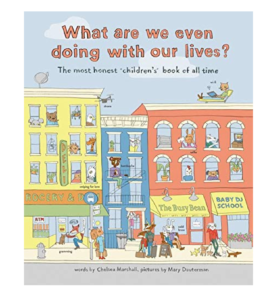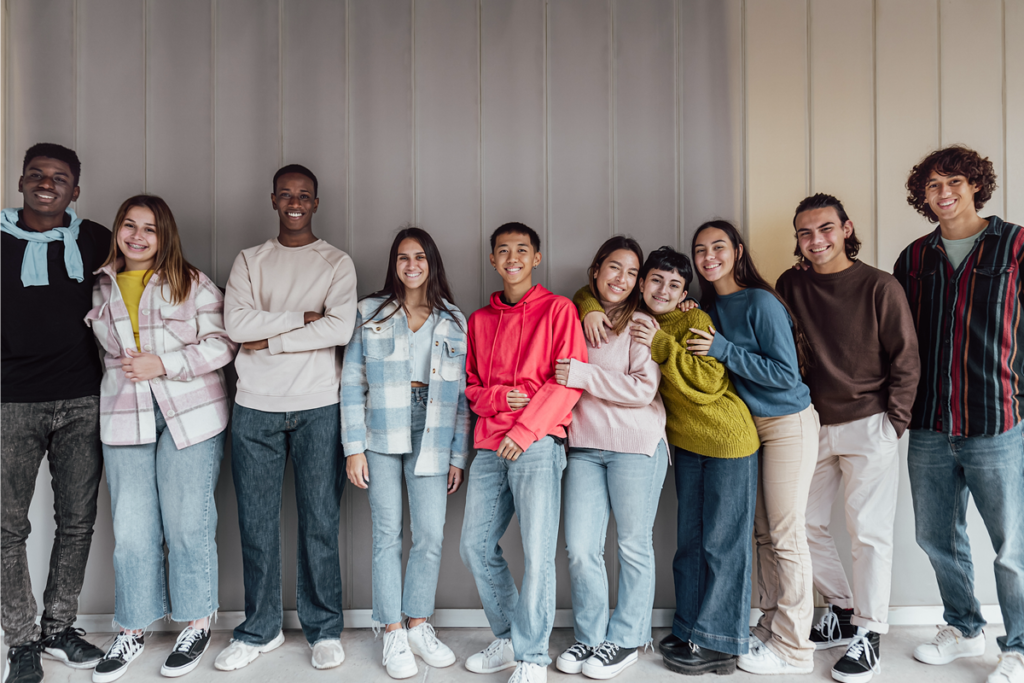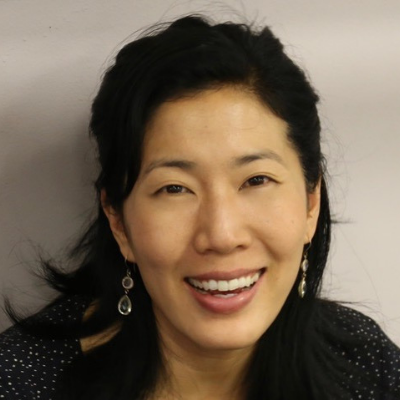The chasm between the worlds of school and work will always have elements of exploration and serendipity, but I believe schools can ameliorate the transition for learners by interweaving student agency and real work experiences throughout.
Cate Han, Founder of Hudson Lab School
Richard Scarry’s book What Do People Do All Day? captures what work used to look like. People had jobs for life, generally following linear career paths.

In recent years, work has changed a lot. Everything about work has become more fluid—from where we work to the hours we work to the kinds of jobs we imagine. (For a hilarious update on Richard Scarry’s classic, check out Chelsea Marshall and Mary Dauterman’s What Are We Even Doing With Our Lives?) In many ways, we now have so much choice in the work we do. It is within our power to discover and design meaningful work for ourselves.
This benefits us all, right? Well, this new world of work isn’t without complications.
Finding work that fulfills us can be tremendously taxing, in part because we’re not prepared for it. We’re taught content and skills in school, but we don’t apply them to real-world experiences. We’re encouraged to do well across all disciplines, often with more emphasis on bolstering our weaknesses, instead of diving into our strengths.
And, when we graduate, we’re supposed to all of a sudden know ourselves well enough to figure out what work is meaningful to us when, to date, we’ve actually made very limited choices in our academic careers and had little to no work experience to base our career decisions on.
Adam Grant from the University of Pennsylvania says that when making big career decisions, “in an unpredictable world, you can’t make a master plan. You can only gauge whether you’re on a meaningful path. The right next move is the one that brings you a step closer to living your core values.”
When you’ve worked your entire life to meet your parents’ and teachers’ expectations, are you equipped to understand what is meaningful to you?
When I graduated, I certainly was not. I knew how to deliver good work and achieve, but I still struggled to discover my passion. This was not for lack of persistence or trying new things but rather a deep disconnect between what I believed the world deemed valuable versus what I valued.
Let’s give learners real-world opportunities to develop their passions in this experimental, low-stakes way. Then, their big career decisions will be informed and based on direct, personal experiences.
Cate Han, Founder of Hudson Lab School
After graduate school, I started to hone in on my own sense of purpose for the first time. I was lucky to land a job where I got to work across several industries mentoring entrepreneurs. There were so many passionate people doing so many fabulous things, and I got to rejoice in the messy process of building ideas and companies with them. There was no map or handbook for the work we were doing. There was no definitive right or wrong decision. Our work was to continuously problem solve, always keeping the big picture in mind. For me, this was the school of life.
How Might We Better Support Learners to Discover their Meaningful Work?
The chasm between the worlds of school and work will always have elements of exploration and serendipity, but I believe it doesn’t have to be as formidable as it is. I believe schools can ameliorate the transition for learners by interweaving student agency and real work experiences throughout education.
If we involve learners in the learning process early on, they will learn how to make choices that interest them. In the Montessori classroom, learners choose among appropriate materials set out by teachers, and each activity has a purpose and process.
In project-based learning, learners collaboratively make choices and learn content and skills through practical application. K-8 learners at Hudson Lab School have filmed documentaries, news programs, and public service announcements. They have successfully launched crowdfunding campaigns, delivered board presentations, made political appeals on behalf of endangered wildlife and the environment, and run mock legal trials.
Through these projects, learners have identified and explored their strengths and how they work best in teams. They’ve realized the amazing things they’re capable of doing, and they’ve directly experienced the kinds of jobs people do all day.
By high school, I believe part of learners’ days should involve real work through scaffolded and managed group internships. They should have the opportunity to “try on” work in different industries, understand their work preferences within a team, and begin to learn what work engages and excites them.
Let’s give learners real-world opportunities to develop their passions in this experimental, low-stakes way. Then, their big career decisions will be informed and based on direct, personal experiences. Exposing learners to different lines of work can be hugely impactful, particularly in underserved areas where career options can feel limited.
I want to drive education so that learners appreciate the unique gifts they possess to enrich their own lives and the lives of those around them. I want learners to have the confidence and process to dive deep into their interests to be empowered to design and lead productive and fulfilling lives every day.
Cate Han, Founder Hudson Lab School
There are examples of these types of programs available to learners, such as Breaker and the Brooklyn STEAM Center, but not nearly enough. Towards this end, I’m launching Hudson Lab Ventures, a summer high school innovation program where learners will tackle real-world challenges faced by actual companies. They’ll use the design thinking approach to apply empathy, process, and creativity to real-world problems that are complex and ambiguous, and they’ll do the work of seasoned executives at multinational corporations.
Ultimately, I found my passion in the search for it. I want to drive education so that learners appreciate the unique gifts they possess to enrich their own lives and the lives of those around them. I want learners to have the confidence and process to dive deep into their interests to be empowered to design and lead productive and fulfilling lives every day.

